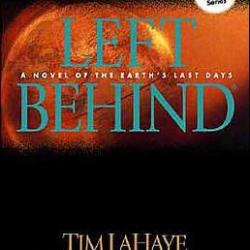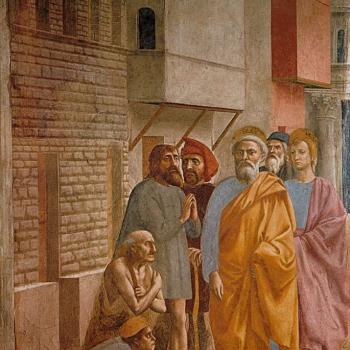Editors' Note: This article is part of the Patheos Public Square on Myth, Imagination, Fairy Tales, and Fantasy. And Faith. Read other perspectives here.
Myth and religion are components of the same knowledge system. Together, they represent humanity's ongoing effort to unravel the mysteries of existence, approach its Creator, and live in accord with the laws of this reality. They would be best understood as complementary belief systems on equal footing along the same continuum.
While myth can be seen in the modern world as fantasy or, worse yet, as falsehood, it is as much a true representation of reality by the people creating it as scripture is for the world's religions. A more accurate view of myth would be an ancient or indigenous belief system, narrative, or spiritual practice designed to better understand reality; many of these myths not only survive today but also offer us a great deal in understanding our own world.
Joseph Campbell, the noted mythologist, devoted his life to conveying the point that there is primal truth in myth. Huston Smith, the renowned scholar of world religions, said myth is the way to get to the metaphysical, transcendent worlds of religion.
And Smith said that Campbell had taught him that in their depths mythology and religion were indistinguishable; and, that it is possible to unify the world's wisdom traditions in an existentially meaningful way.
In fact, Campbell wrote at the completion of his epic four-volume study of myth and religion, The Masks of God, that, looking back over his "richly rewarding enterprise," the series confirmed for him a thought he had long entertained: "the unity of the human race, not only in its biology but also in its spiritual history, which has everywhere unfolded in the manner of a single symphony."
Though we are more open now to the idea of one reality, one creator, and even the oneness of humanity, we have come to this gradually, by a process of evolving consciousness.
Myth and religion tell the same story of seeking the unknown from different perspectives at different times. As Campbell notes, they are the story of the unfolding spiritual unity of the human race.
At the time of early mythology, humanity's consciousness was polytheistic, built upon the idea of many gods and goddesses. These systems of belief integrated ritual, ceremony, and other shamanistic practices into socially prescribed processes to bring about spiritual transformation for the dual purpose of personal spiritual growth and community bonding.
If a line can be drawn between ancient myth and modern religion at all, it is at best very blurred. Originating when a polytheistic worldview was prevalent, Hinduism still thrives today when a monotheistic view, or the idea of one Creator, has taken over our collective consciousness.
Indigenous mythologies, also called indigenous spiritual traditions or primal religions, are other examples of this blurred line. These belief systems not only hold everything deeply sacred and alive but also are experiencing a revival today that is playing an essential role in our recognition of the oneness of all creation and creatures.
As one example, at the Koloko-Honokohau National Historic Park, on the Big Island of Hawaii, the interpretation of the original settlement acknowledges their "oneness with the land," that "they were one with their gods," and that "they were intricately woven together with each other." Their belief system focuses on unity and harmony, and is brought into the present with their annual Ohana (family) Day, incorporating the blessing of the canoe and other ceremonies and celebrations.
At this event, a native Hawaiian (kanaka maoli) cultural interpreter for the National Park System told me he has been doing a lot of "culture-bridging" to help others understand that their ancient indigenous belief system is very much alive today. In fact, across the centuries they have never lost their consciousness of oneness. This has always been, and still is, the way they carry out every aspect of their lives.
 |
| The blessing of the canoe |
Among modern world religions, the Baha'i Faith shares a "reality as one" view with many indigenous spiritual traditions: "Religion is reality and reality is one. The fundamentals of the religion of God are therefore one in reality. There is neither difference nor change in the fundamentals… for religion and reality are one and not multiple."




